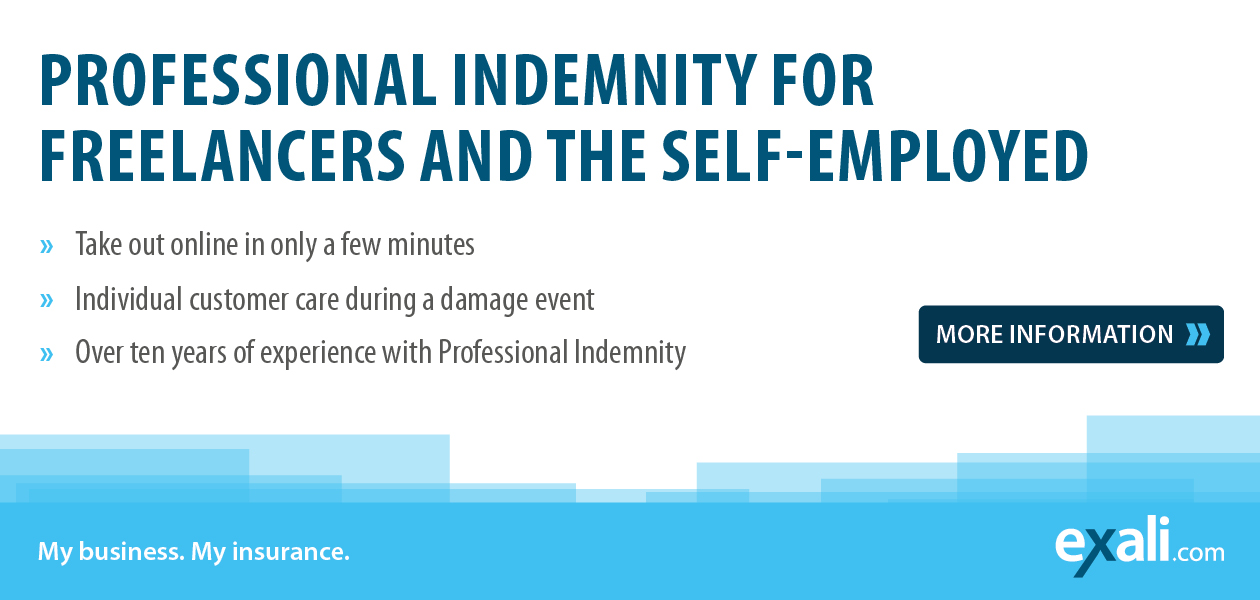Negligence: What Professional Indemnity Covers
When an insurer receives a claim, the inevitable question is whether the person who caused it was negligent. But what exactly does the term "negligence" actually mean? Is there a difference to so-called "intent"? We clarify, additionally illuminate, in which cases your Professional Indemnity will cover you and clear up an important myth.
Negligence: If The Necessary Care is missing
There are many different definitions of negligence, some of which are difficult to distinguish. The question of whether someone has acted negligently is elementary in many insurance cases in order to find out to what extent persons are to blame for a damage.
Most legislators define negligence as conduct in which the person acting does not exercise the necessary care. The most important question here is whether someone has exercised the required care and caution that are objectively needed in a particular situation. This also includes that the consequences of the negligent act are foreseeable and avoidable - in other words, there must be a fundamental possibility to behave in such a way that no negative consequences are to be expected after the act. Thus, negligence is certainly a form of fault (just as in the case of a willful and knowing act), but in contrast, the person who acts negligently does not want to cause any harm. If a certain mistake can happen to a normally careful person, it is a case of slight negligence. Gross negligence, on the other hand, is a mistake that such a person would never make in a concrete situation.
An example to illustrate this: You work in the IT sector and are responsible for the data backup of your clients. Your client can objectively expect you not only to carry out regular backups, but also to ensure that they are complete and functional. If you do not take care of this, you have acted negligently, because you have accepted the risk that your clients will lose data and thus most likely also money if the backup copies turn out to be unusable at some point. This real damage event shows what such a scenario looks like in reality: IT-Fail: 130.000 Euros in Damage Due to Faulty Backup.
In insurance terms, this means that you have caused damage - without intention, but you have at least facilitated or caused it through your behaviour. In a nutshell: If you could have prevented the damage by acting differently, you behaved negligently.
If you want to know exactly what Professional Indemnity covers, we can recommend this article to you: Professional Indemnity Insurance - Demystified!
Difference Between Simple and Gross Negligence
In terms of insurance, the subject of negligence is subdivided into simple and gross negligence. How a loss is to be classified in concrete terms is a case-by-case decision, which in part has to be made by lawyers. Nevertheless, there are basic characteristics to distinguish the categories from each other.
Simple Negligence
Simple negligence is when you breach your due diligence to a small extent, for example through a minor carelessness. This happened, for example, at a photo shoot where the photographer damaged an expensive sculpture. You can read the whole story in the damage event: Trouble at a Photo Shoot: Self-Employed Photographer Damages Sculpture.
Gross Negligence
On the other hand, you act with gross negligence if you disregard the necessary care to a particularly severe degree. Let's assume, for example, that as a service provider you are responsible for the IT infrastructure of your clients, but in the course of your work you fail to provide adequate protection against cyber attacks. As a result of this omission, your clients fall victim to a cyber attack and lose important data records and a lot of money. You should have foreseen this damage and have therefore acted with gross negligence.
In this context, we want to dispel a myth that is widespread among the self-employed, freelancers and entrepreneurs: many (understandably) wonder what benefit Professional Indemnity Insurance offers at all if they cause damage due to gross negligence. The idea is still rampant that Professional Indemnity Insurance does not cover damages caused by gross negligence. Therefore, we would like to expressly mention at this point: This myth is NOT true! In the area of Professional Indemnity Insurance, damages from simple as well as from gross negligence are covered. This means that you always have reliable support in the case of a damage event.
Coverage for Simple and Gross Negligence
However, in the Professional Indemnity Insurance through exali, both simple and gross negligence are insured. This means that you are not alone in the case of damage event, because the insurer checks the claims made against you for their legitimacy, settles justified claims and fends off unfounded ones on your behalf.
Acting Wilfully and Knowingly
Whether simple or gross negligence, both types of negligence have one thing in common: the occurrence of damage was never intended. By acting negligently, you accept the possibility, but do not actively aim for it. If a person forces a damage through his or her behaviour, he or she is acting willfully and knowingly. This is NOT insured and anyone who has caused damage in this way must pay for it themselves.
As part of the claims settlement process, the insurance company checks whether the damage was caused by a willing and knowing act. If this is the case, the insurer is released from the obligation to pay the amount of the damage.

Vivien Gebhardt is an online editor at exali. She creates content on topics that are of interest to self-employed people, freelancers and entrepreneurs. Her specialties are risks in e-commerce, legal topics and claims that have happened to exali insured freelancers.
She has been a freelance copywriter herself since 2021 and therefore knows from experience what the target group is concerned about.









